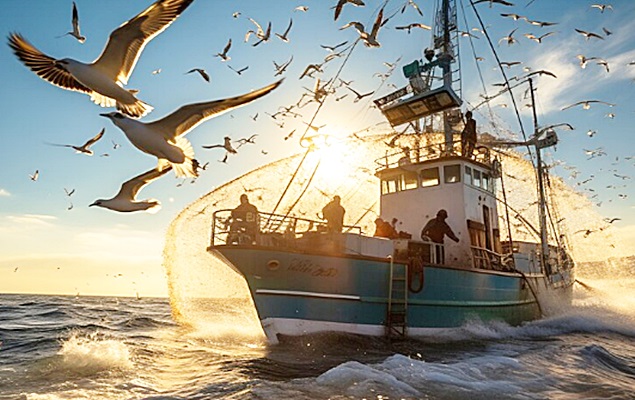1132

EU Parliament Takes a Firm Stand Against Unsustainable Fish Imports
In a global context marked by the depletion of fish stocks and increasing pressure on marine ecosystems, the European Parliament has recently adopted a firm position against the import of fish derived from unsustainable fishing practices, Euractiv reports.
This initiative, supported by a broad coalition of political groups, aims to protect marine biodiversity and safeguard the European fisheries sector.
A Political Consensus for Sustainability
During a recent plenary session, the European Parliament voted in favor of a European Commission proposal introducing trade measures against countries that allow unsustainable fishing.
According to the proposal, third countries that fail to cooperate in the sustainable management of fish stocks, in accordance with the UN Fish Stocks Agreement, could face EU import restrictions or bans.
The EU Commissioner for Fisheries emphasized the importance of these measures, stating that “we cannot afford to let the efforts of our industry and conservation work be undermined by irresponsible practices.”
Pressure on Imports from Russia
At the same time, the European Union is considering expanding sanctions against Russia, including a potential ban on Russian fish imports. Such a measure could significantly affect countries like Germany, which relies heavily on pollock imports from Russia.
Representatives of the German fishing industry warn that such a ban could lead to major supply chain disruptions, given the lack of alternative sources with comparable volume and sustainability.
Criticism Over Industry Lobbying Influence
Despite these efforts to promote sustainability, the EU has faced criticism over the excessive influence of the fishing industry lobby in decision-making processes.
An investigation revealed that a significant portion of the EU delegation to negotiations on tuna stocks in the Indian Ocean consisted of industry lobbyists, leading to accusations of “neocolonialism” and undermining of conservation efforts.
Opportunities for a Sustainable Trade Policy
The adoption of these measures reflects a significant shift in EU trade policy, moving toward conditioning market access on compliance with sustainability standards.
This approach presents an opportunity to promote responsible fishing practices globally and to safeguard marine resources for future generations.
However, the success of these initiatives depends on the rigorous implementation of proposed measures and the enhancement of transparency in the decision-making process to avoid undue influence from commercial interests.
Conclusion
The united stance of European political groups against unsustainable fish imports marks an important step toward a more responsible trade policy and the effective protection of marine ecosystems.





